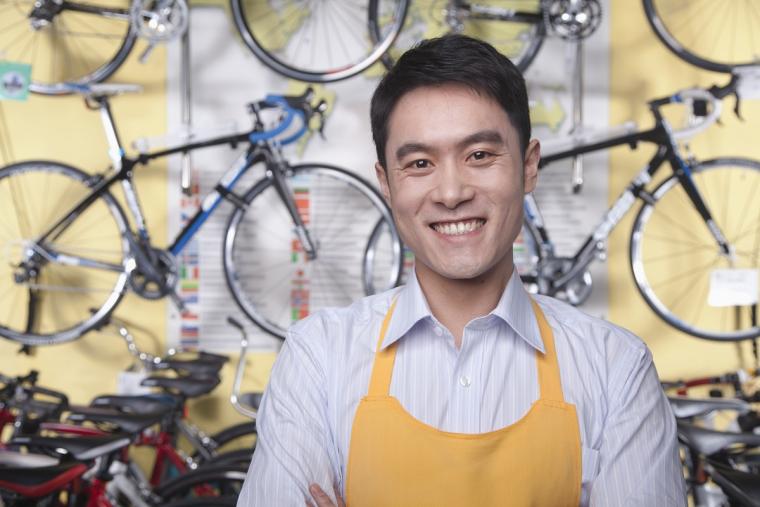
In late May, RideLondon — hailed by locals as the London Marathon on two wheels — returned after a two-year, COVID-induced hiatus. The event features several different races, from a “FreeCycle” family ride on an eight-mile, traffic-free route to 30-, 60- and 100-mile rides through the Essex countryside.
Organizers noted that 23% of the starters in the 100-mile event were female, a 40% increase over 2019. Meanwhile, nearly 50% of all riders in the 30-mile version were females. All told, a reported 22,600 cyclists participated in the longer rides.
“We’ve got global warming. We have a health and obesity crisis. One in four 11-year-olds are now obese,” Hugh Brasher, head of the London Marathon (which operates RideLondon), told London’s The Guardian. “With Freecycle, and the 30, 60 and 100 events, there really is something for everyone.”
Brasher also noted that his organization has made strides to attract more females to the ride, as well as disability cycling groups and groups representing Black, Asian and other riders.
“Cycling needs to become more accessible, and it’s something … we’ve worked incredibly hard since 2013,” he said. “The London marathon is 40 years old. With RideLondon, this is the eighth edition. Meaningful change doesn’t happen quickly. It’s so important to make cycling accessible for everybody. With the FreeCycle at the same time, this is one day in London for everyone.”
Cycling is steering toward greater diversity than ever these days. “Turning the Cogs,” for example, is a data-led research project with the goal of increasing the diversity of riding events around the world. Europe-based researchers Wendy Ellis and Hetty Key are circulating an online survey of riders who enjoy cycling as a regular activity.
“We particularly want to hear from those who are part of an under-represented area of cycling,” according to the survey’s landing page. “Cycling has taken off in recent years, bringing many of us joy mentally and physically. However, despite rapid growth on the roads and trails with more and more diverse groups appearing, the starting lines of events are lagging behind in reflecting the world around us — and we want to know why.”

Ellis and Key are not alone in aiming to make cycling more available to everyone. In the United States, former NBA All-Star and Basketball Hall of Famer Reggie Miller spearheaded the Ride With Reggie in November — three loops, or slightly more than 30 miles, on the 2015 Richmond UCI World Championship Course in Virginia. More than 4,000 riders participated and helped raise more than $50,000 to assist in the creation of cycling programs at Historically Black Colleges and Universities. The fundraiser was held in partnership with cycling outfitter Castelli and indoor cycling app Zwift.
““There’s not a lot of diversity in cycling,” Miller told Bicycling.com in the days leading up to the Ride With Reggie. “A lot of that has to do, in my opinion, with a lack of promotion. If people had access to equipment and training, we could be a more diverse crowd.”
Miller noted that St. Augustine University in Raleigh, N.C., offers the only HBCU cycling program in the country, adding that he’d like to see that number climb to at least five.
Meanwhile, the International Cycling Union’s (UCI) freestyle BMX consultant Bart de Jong has called for more Olympic spots for that discipline, potentially bending the spokes of other leaders in the cycling world.
As Inside the Games reports:
Freestyle BMX made its Olympic debut at Tokyo 2020 and is on the [program] again for Paris 2024 but with a bigger line-up of athletes.
A total of six extra places have been awarded to the discipline, as it increases from 18 to 24, while road cycling has fallen by 17.
Although the decrease was done in the name of gender equality, De Jong admitted he would not be averse to seeing more places taken from road cycling and given to freestyle BMX.
“I care about BMX, and we want to grow,” de Jong said in May at the International Extreme Sports Festival (FISE) in Montpellier, France. “We want to grow BMX, and if it’s at the cost of other disciplines I would say, ‘I don’t care’. We want to be out there, we want to be seen, we want to develop the sport. If that means we have to take spots away from different disciplines, then so be it.”

